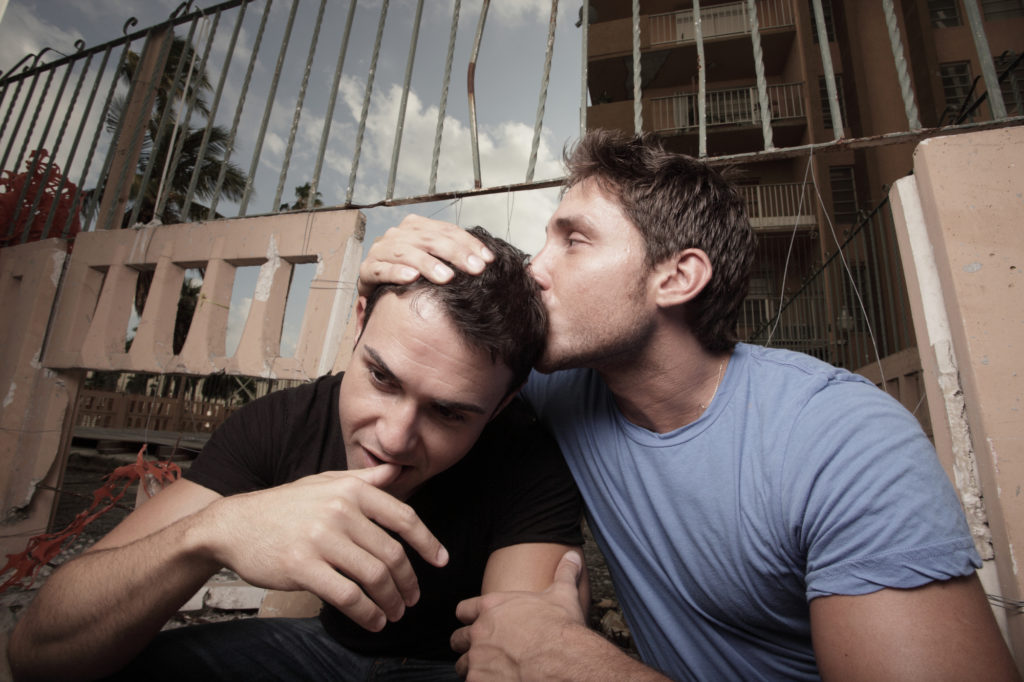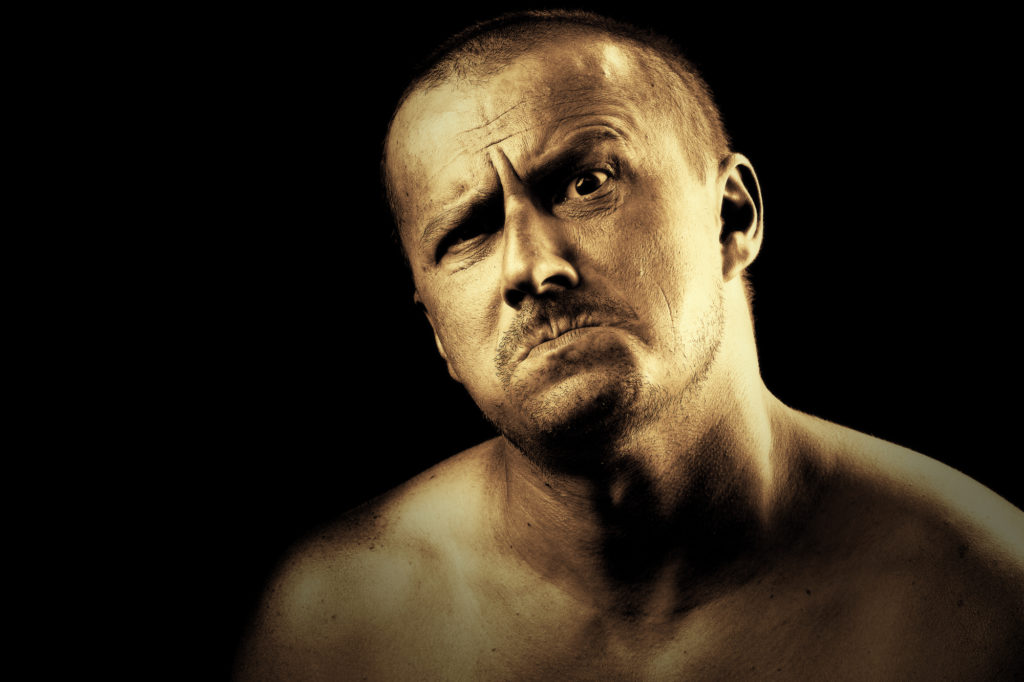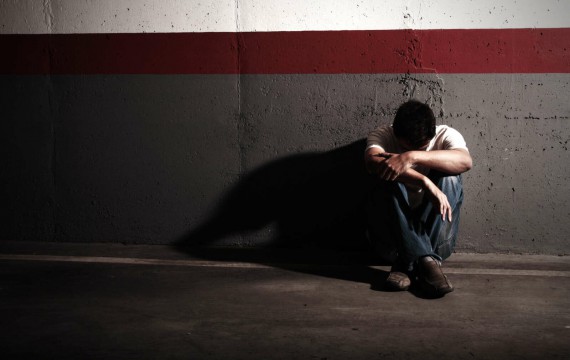Physical, sexual, and emotional traumas in childhood are all too common.
Regardless of whether you were physically attacked, bullied, sexually assaulted, or chronically neglected, the pain of childhood trauma can sting for decades after the original incidents.
Researchers have found that childhood traumas can negatively impact permanent development changes in the brain, and be an ongoing contributing factor to various psychiatric problems like anxiety, depression, panic attacks, and post traumatic stress disorder.
In short, the body, heart, and mind remember the old trauma.
The resulting shame, pain, guilt, and despair of the childhood trauma is then either acted inwards as depression, anxiety, suicidal ideation, dissociation, or post-traumatic stress, or acted outwards as compulsivity, substance abuse, aggression, or hyperactivity. In either case, the thought processes and behaviours lead back to a sense of trying to escape oneself.
Some of the most common resulting mechanisms that come from experiencing childhood trauma are mindsets such as, “I can only rely on myself”, “I always need to be on high alert”, “I always need to be in control and/or angry.” And while these defence mechanisms may have served us for a time in order to get through our childhood, they become maladaptive and limiting in our adult years.
The good news is that, for many people, the resulting effects of your traumas can be worked through. Even if your brain does wire itself a little differently because of the core wounding, it is not insurmountable.
You can move through your trauma to experience abundant self-esteem, loving intimate relationships, and a deep sense of meaning in your life. Your traumatic experiences do not have to define you.
And even if people have told you to “just get over it”, moving through the pain of your childhood trauma will take consistent, genuine effort.
5 Steps To Overcoming Childhood Trauma
Here are five ways to overcome the seemingly debilitating childhood trauma that you experienced.
1. Allow yourself to get close to people
Because your childhood trauma caused you to spend a disproportionate amount of your energy on survival (versus social/emotional development), you likely find it difficult, challenging, or scary to get close to people.
People who experienced ongoing childhood trauma (especially before the age of 10) are more prone to chronically isolating themselves in adulthood.
Counteract this behavioural mechanism by allowing yourself to extend to others and allowing them to see you as you are.

Nothing melts through shame faster than allowing yourself to be close to others and sending yourself the metamessage that, yes, you are loveable and worthwhile as you are today.
Find a small handful of good friends, and double down on your connection with them. Allow them to see you. Allow them to love you. And allow yourself to love them in return.
2. Take good care of your physical and emotional body
It’s common for sufferers of childhood trauma to neglect themselves, either because they subconsciously feel undeserving of love and care, or because they covertly use it as a way to have low energy and continue the downward spiral of isolation and self-rejection.
Regardless of what your mind might think you deserve, treat yourself as you would treat a beloved friend.
To take care of your physical body, regularly invest in quality sleep, nutritious food, bodywork (massages, acupuncture, yoga, etc.), and exercise.

To take care of your emotional body, regularly make time to check in and see if you need to experience any emotional release. Anxiety and depression are often just the result of chronically unfelt feelings. Feel the feelings at their root and your symptoms will lessen, and eventually leave your body.
3. Get honest about recognizing your defence mechanisms
Take an honest look at your life, as it is today, and allow yourself to recognize all of the ways that you attempt to keep yourself safe. More specifically, what are the defence mechanisms that you used to get through your childhood that are no longer serving you.
Perhaps you told yourself that others couldn’t be trusted and so you became ultra self-reliant. Or maybe you used anger, aggression, and intimidation to get through your childhood and that has yet to wear off.
Whatever you do in your present day reality, the first step in healing your way through your old pain is recognizing what you currently do as a result of your childhood trauma.
4. Act as if you weren’t afraid
Once you’ve identified what you do in order to keep yourself ‘safe’, the next step is to do something different than what your protective, fear-based self would have you do.

If you normally stay guarded and don’t let people in, allow others to see you and get close to you.
If you normally act with aggression and anger, take a deep breath and act with compassion, curiosity, and love.
If you normally aim to do everything yourself, allow yourself to be supported by others.
This is the true epicentre of personal growth and transformation. Come to the same fork in the road where you’ve always done the same thing… and choose to do something different.
5. Allow yourself to extend to others and be supported
One of the most effective ways to release shame, guilt, fear, sadness, and despair, and to overcome patterns of isolation and rumination, is to allow yourself to be in a tight-knit community of people who love and support you.
Finding your tribe might take some initial effort, but it’s value will pay dividends in your life for decades to come if you do it right.
Regardless of whether or not you currently feel like you have this tribe to lean on, decide right now that from this point forwards you will allow yourself to extend to others. You will ask for support when you need it. You will reach out when you need someone to hear you.
You are a human being, and therefore you are unable to see your own blind spots. That’s just the human condition.
If you ever catch yourself spiralling and needing support, love yourself enough to allow yourself to be held, loved, and cared for by another.
Again, being in a close community of people who love you is one of the most durable ways to heal debilitating shame resulting from childhood trauma. The love that you give and receive will heal decades of residual stuck emotion. Lean in. It’s worth it.
Dedicated to your success,
Jordan
Ps. If you enjoyed this article, you will likely also love reading:
– All Of Your Suffering Was Worth It
– How To Fully Release Difficult Emotions That Hold You Back
– How Your Childhood Is Messing Up Your Love Life
– How Perfectionistic Parenting Affects Children Later In Life







